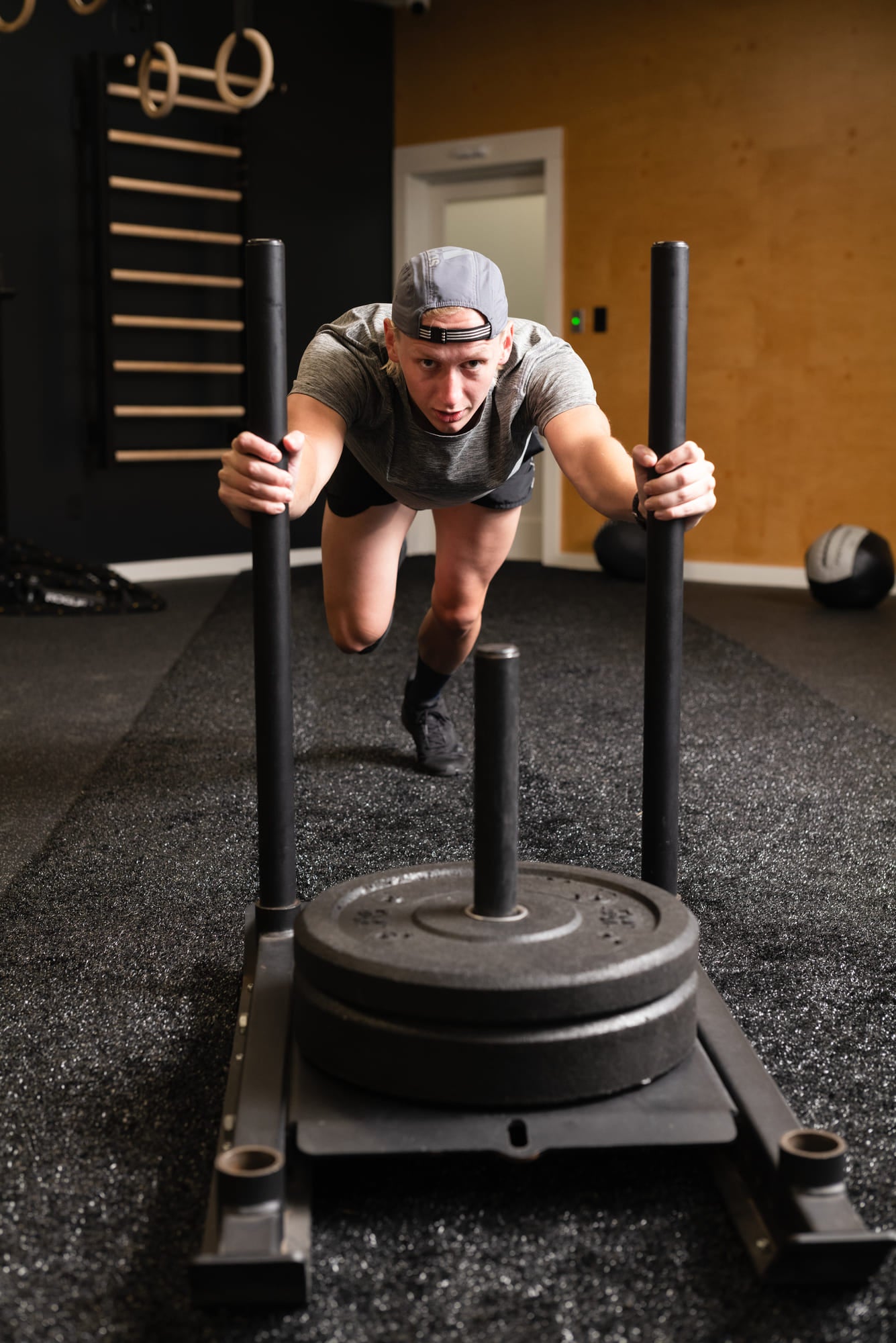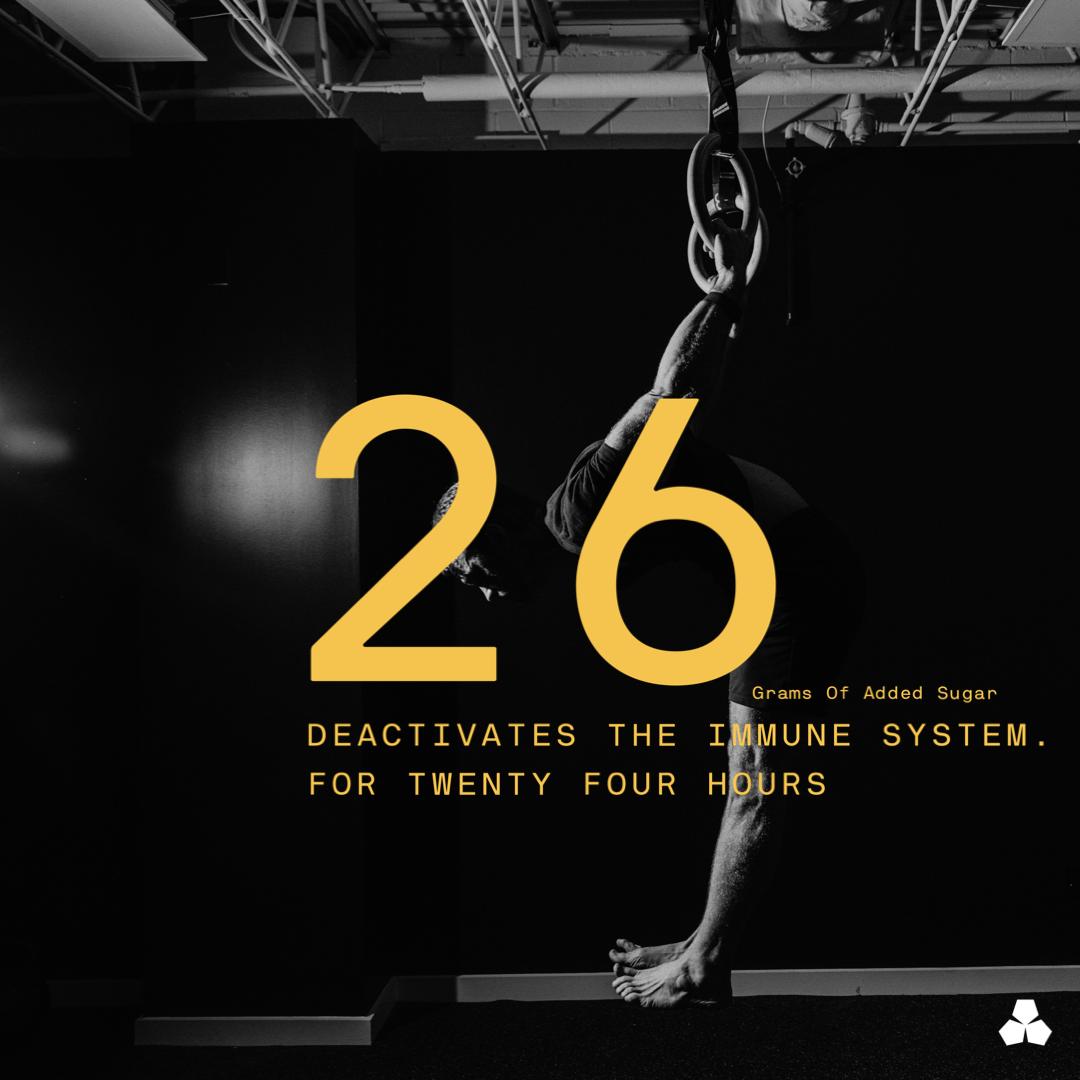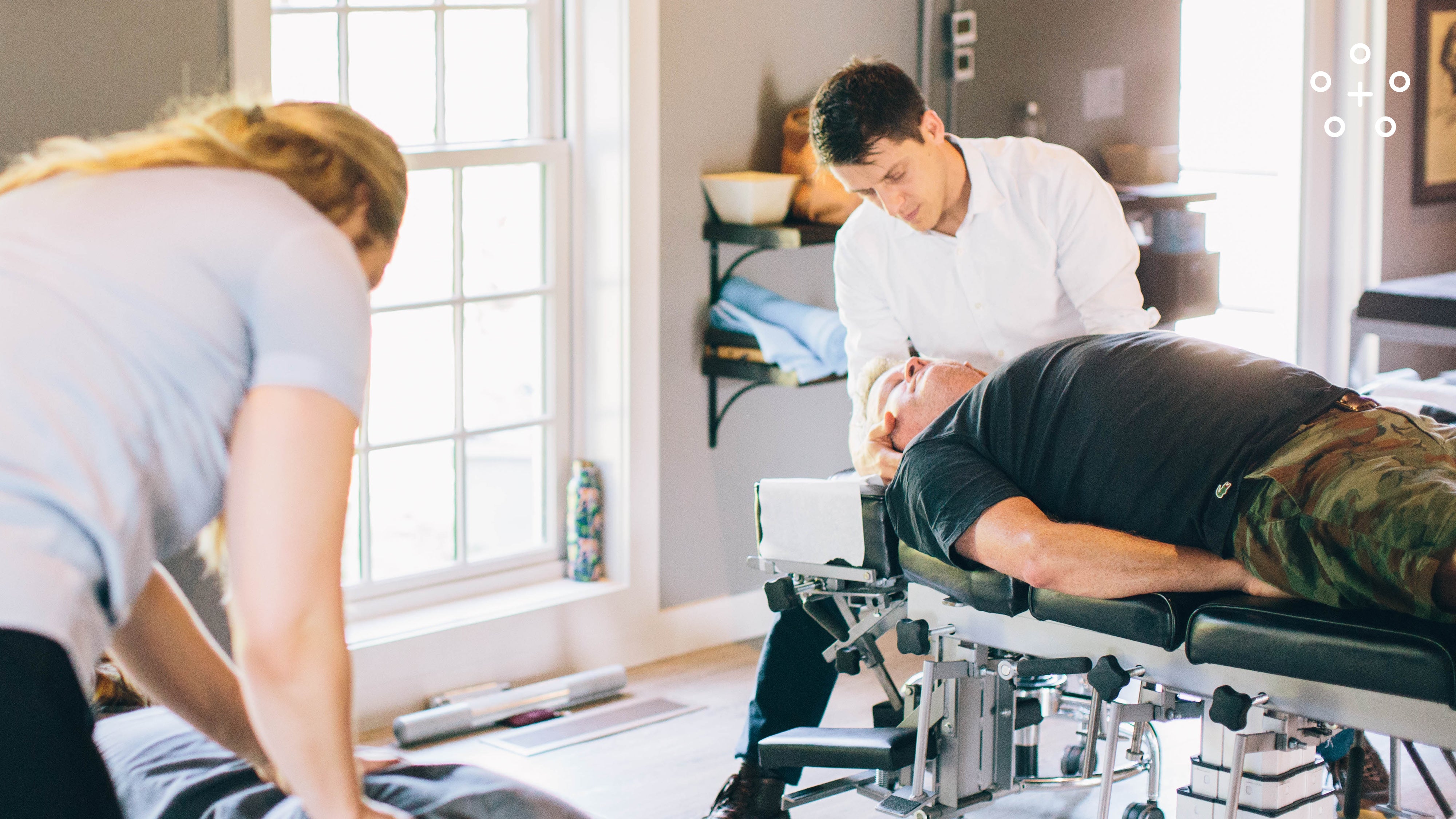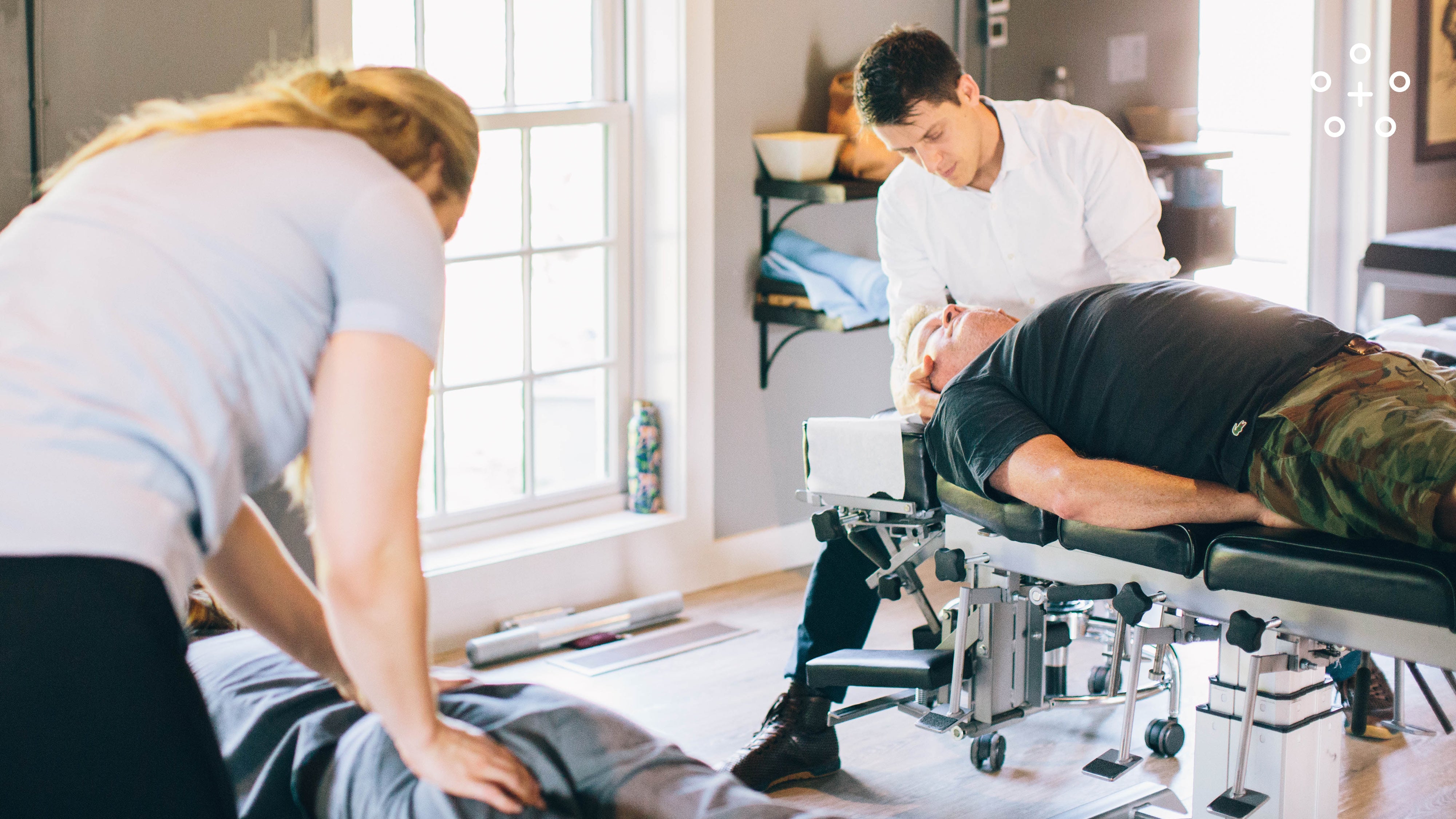https://vimeo.com/330822119
Transcript:
My name is Dr. John Palmer with Friends & Family Health Centers. Today, I'm talking about Foundation #4 out of five. So, we're doing a series that actually is educating people in all 5 Foundations. This is important because these 5 Foundations are the reason why we get people better in our clinic.
The fourth foundation is movement. Most of your brain is dependent on you moving. So, whenever you move, you literally light up your cerebellum. You light up your brain to the point to where blood flow increases, oxygenation increases. You literally turn your body on when you move.
If you are one of those people that say, "Oh, youknow what? I move throughout my day." Well, it doesn't really work likethat. What it does work like is, you have to think about where we came from.Ideologically, or where we started from, we started from cave men and cavewomen. What did they do? They actually would go and hunt. They would actuallyincrease their heart rate.
Actually, think about this. Think about hunting a rabbit,and how hard it would be, and what your physiology would do. Do you thinkyou're gonna be calm and sedentary? No, you're not. You're going to be movingaround. You're going to be moving at a high rate for a short amount of time.This is the reason why high intensity interval training has worked really wellfor people or tabata, CrossFit. The reason CrossFit works, not because it'sCrossFit, because of how they program the workouts. You can do those things,also to actually make your body healthier and happier.
And so, I want you to understand that it's not about trulya six pack, or biceps, or whatever that is. It's about blood flow, and so it'sabout functional muscle. It's about that functional muscle to actually holdyour body upright and actually to move the best way as possible. What I mean bythat is, if you go to lift something, you need to be able to lift it. If you goto lift your baby 50 times in one day, which a lot of moms do, with one arm, orthey hold a baby with one arm and they do other things, and so you have to havefunctional muscle. You have to do things that will actually get you from onepoint to another in whatever stage of life that you're in, and so you need tohave a workout program that is centered around actually changing yourphysiology, so changing your heart rate, changing your respiration rate whereyou're having to catch your breath. What that is doing is delivering oxygen,glucose, and nutrients to your whole body. It's perfusing every single cell ofyour whole body with oxygen, glucose, and nutrients.
The really cool part about it is, also, when you deliveroxygen to your body, it's very hard for cancer to live in your body. It's veryhard for any type of infection to actually win whenever you have readily availableoxygen, glucose, and nutrients. I'm being very general with these terms. If youwant to be specific, I'll have to do that on an individual basis.
The other part is, is when people do exercises, a lot ofpeople think that they have to exercise for a really long period of time. Onething that I want to tell you is that's not true, and so one thing that youhave to practice at the beginning, you have to make sure you move. You have tomake sure you're able to do a squat, you're able to lift things overhead,you're able to rotate, so all of these things that mean you don't have to haveweights to do them at first.
One of the reasons why people end up in our clinic is theytry and do too many things at once, and they end up injuring themselves, andthen we're able to help them and they're able to get back to actuallyfunctioning the way that they were meant to function with our guidance, and sothe whole point of exercise is to make sure you increase your heart rate,increase your respiration rate. You increase the delivery and availability ofoxygen, glucose, and nutrients. You also need to be able to begin to buildfunctional muscle. That functional muscle needs to be... Usually, it means thatyou don't use machines at first, machines being like a bicep curl or somethingthat is on a cable. It needs to be like a free weight that you have to actuallyadapt to, and so what I mean by that is when you lift something, your brain hasto engage, and it has to use all of those sensors in your body to actually liftit effectively. If you actually are doing a bicep curl machine and you're onlyusing that machine in a linear or a static fashion, it's not going to be aseffective as if you were to use a free weight or you were to do a squat.
I could get a lot more in-depth into this. In the future,we're gonna have videos on doing certain movements, but one thing I want you tounderstand. Your brain controls everything in your whole body, but it isdependent on movement. It is dependent on the movement of that second foundationthat we talked about, movement of the spine, the position of the spine so itcan move optimally. You need to make sure that the fuel is there so when you dogo to increase your heart rate, increase respiration rate, you have clean fuelto actually do those things. You don't create inflammation. You createinflammation when you move without fuel.
So, movement is so important to make the brain healthy.You have to do it daily. You have to make sure that you move on a daily basis.You have to roughly get about an hour of movement a day. You have to changeyour physiology. If you're injured, you have to see a professional to actuallyget you to a point to where you're not having symptomatology to where you canmove.
There's no reason, in most states of the human body, thatyou cannot do something to actually improve your movement throughout the day.That might mean for the elderly population, they need to go get in the pool.That might mean that they need to walk around their house. Any level of healththat someone is in, you can actually challenge that level of health.
Think about what exercise is. It's truly, you'rerequesting your body to adapt in a stressful situation. You're essentiallypriming your body to actually adapt, and you're being proactive in saying,"Hey, body. We have to adapt in these stressful situations." So whenyou do have a bad day, what's gonna happen? You're actually going to be able todecrease that stress. You're going to absorb it a lot more efficiently. You'renot going to get as stressed out. Your body is not going to release thosehormones and those chemicals in your body that creates inflammation on achronic basis.
What you're doing is when you exercise, is that youactually are priming your body to adapt to a stressful situation. That's whatlife is. You're strengthening your heart. You're strengthening all of yourorgans. You're strengthening your brain. You're strengthening your body'sability to truly change in the moment and then change back to a normalstabilization state whenever you stop working out.
So, that's why it's important to do it on a daily basis.Don't be reactive. If you're reactive, that's how disease happens. When diseasehappens, unfortunately, that's when we die. And so, if you practice, you workout, you practice that stressful situation, and that's how you get better atadapting. That's how you stay healthier. Truly, stronger people are harder tokill, and so what I mean by that is I don't mean that being funny. It's true.If you can adapt more easily, then you are able to adapt. You're able to livelonger. You're able to have a more fruitful life. You're able to have the bestchance at living the life that you want to live.
My name is Dr. John Palmer. Thank you for listening, and hopefully I taught you at least one thing. Check out our blog posts. Check out our website. It's a lot of other content there if you want to learn more.




